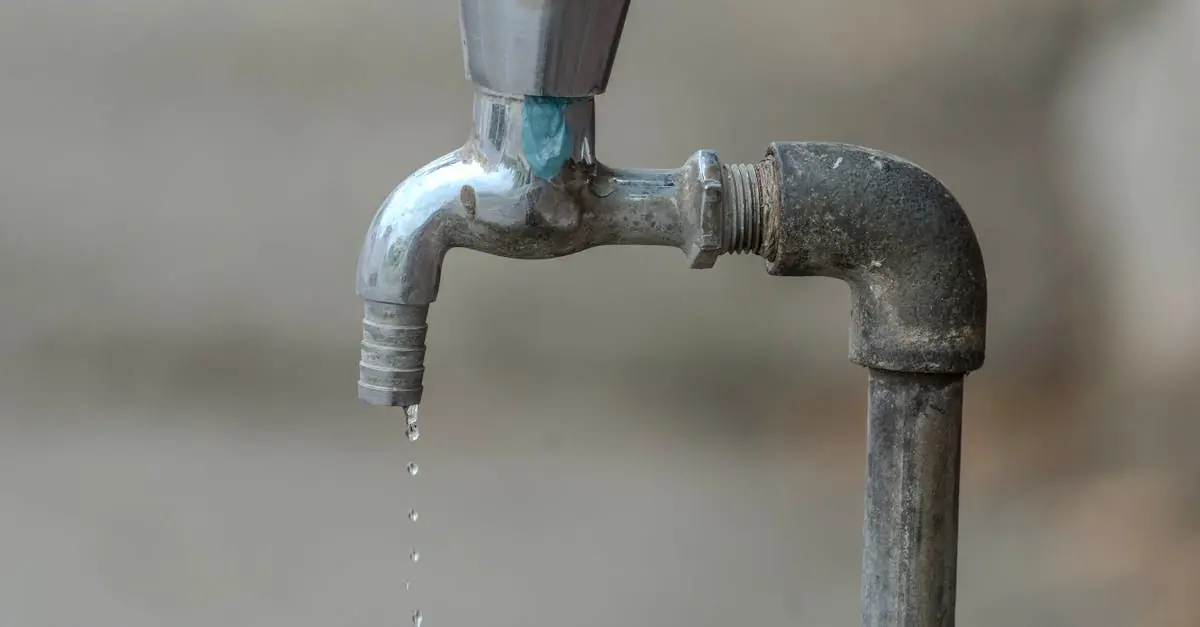Table of Contents
ToggleUtility bills can feel like a sneaky ninja in the night, creeping up on you when you least expect it. One moment you’re sipping coffee, and the next, you’re staring in disbelief at a bill that could fund a small vacation. But fear not! With a few savvy strategies up your sleeve, you can dodge those pesky overcharges and keep your hard-earned cash where it belongs—safely in your wallet.
Understanding Utility Overcharges
Utility overcharges refer to the billing errors or excessive charges on utility bills, causing unexpected financial stress. Identifying these overcharges can empower consumers to take control of their utility expenses.
Definition of Utility Overcharges
Utility overcharges occur when a customer pays more than their actual usage. Such discrepancies may arise from incorrect meter readings, outdated billing systems, or misapplied rates. Utility companies typically charge customers based on estimated usage when readings aren’t available. This estimation can lead to significant variances in billed amounts, resulting in unwarranted charges.
Common Causes of Overcharging
Several factors contribute to utility overcharges, including meter malfunctions. A faulty meter might record excessive usage, causing inflated bills. Inaccurate data entry can also occur when utility providers input manual readings into their systems. Seasonal variations in energy rates may surprise users as well, especially during peak seasons when costs typically climb. Lastly, outdated pricing structures often lead to customers being billed at higher rates than necessary. Being aware of these causes allows consumers to check their bills for accuracy and challenge discrepancies.
Tips for Avoiding Utility Overcharges
Monitoring utility bills can prevent unexpected charges. Using strategic approaches ensures consumers remain aware of their usage and costs.
Regularly Review Utility Bills
Regular reviews of utility bills help identify discrepancies. Look for anomalies in usage patterns and charges. Examine each entry for accuracy, verifying readings align with actual consumption. Note any significant fluctuations that stand out. Report errors promptly to the utility provider for correction. Many providers have apps or online portals simplifying this process. Take advantage of these tools to track billing details easily.
Understanding Your Rate Plan
Comprehending the assigned rate plan can minimize overcharges. Examine the specifics of the current rate structure. Some plans fluctuate based on peak and off-peak hours, so timing influences costs. Identify whether fixed or variable rates apply to your account. Check for any seasonal rate changes that might affect monthly totals. Understanding these details enables customers to adjust usage accordingly and avoid unnecessary expenses.
Energy-Saving Practices
Adopting energy-saving practices significantly reduces utility costs. These measures ensure energy efficiency while minimizing waste.
Implementing Energy Efficiency Measures
Utilizing energy-efficient appliances lowers energy consumption. Refrigerators, washing machines, and HVAC systems marked with the Energy Star label consume less electricity than standard models. Proper insulation in attics and walls enhances heating and cooling efficiency. Sealing gaps around windows and doors prevents air leaks, moderating indoor temperatures. Switching to LED bulbs results in less electricity usage compared to incandescent bulbs, yielding smaller electricity bills.
Using Smart Devices
Incorporating smart devices optimizes energy usage. Smart thermostats allow users to set schedules and adjust temperatures remotely. Energy monitors track real-time consumption, helping identify patterns and inefficiencies. Smart plugs control the power supply to appliances, ensuring they’re not using electricity when not in use. Voice-controlled assistants can automate routines, reducing energy waste by efficiently managing home devices.
When to Seek Assistance
Recognizing when to seek help can empower consumers to address utility overcharges effectively. Several resources are available to assist in resolving billing disputes.
Contacting Utility Providers
Utility providers often encourage customers to report discrepancies in their bills. Call the customer service number listed on the bill with specific details about the charges. Many utilities also offer online chat options for immediate assistance. Document interactions with providers, noting times, dates, and names of representatives. This record can be valuable if disputes arise later. If an error appears clear, escalate the issue to a supervisor for a quicker resolution.
Involving Regulatory Agencies
Regulatory agencies oversee utility operations and protect consumer rights. Contact these agencies if utility providers fail to resolve billing issues satisfactorily. Provide clear evidence of overcharging, including copies of bills and records of communications. Regulatory agencies can mediate disputes and enforce compliance with local utility regulations or solve systemic issues impacting multiple consumers. Filing a complaint with such agencies often prompts further investigation into the utility’s practices, benefiting consumers overall.
Conclusion
Avoiding utility overcharges requires vigilance and proactive measures. By regularly reviewing bills and understanding rate plans, consumers can identify discrepancies before they escalate. Implementing energy-efficient practices not only lowers costs but also enhances overall energy management.
When discrepancies arise, timely communication with utility providers is crucial. Documenting interactions and seeking assistance from regulatory agencies can help resolve persistent issues. By taking these steps, individuals can protect their finances and ensure they’re only paying for the energy they actually use.








